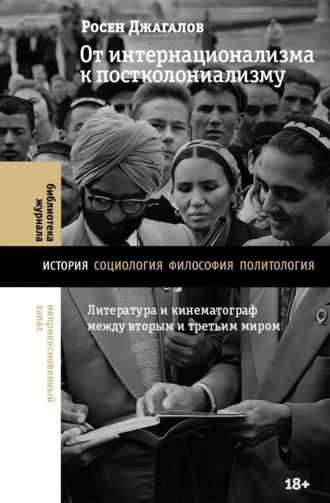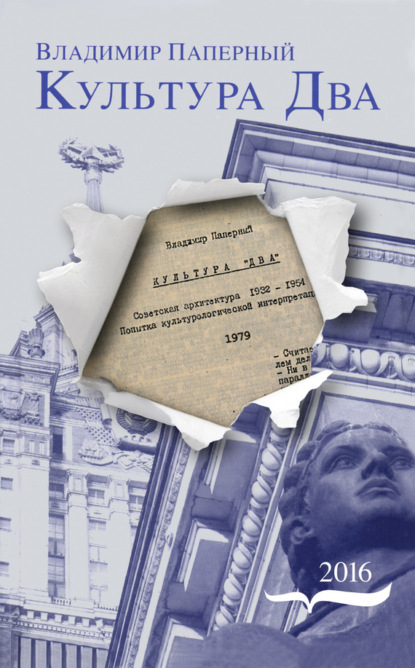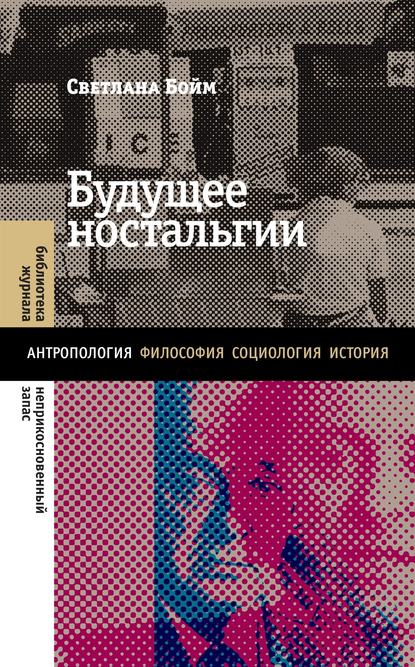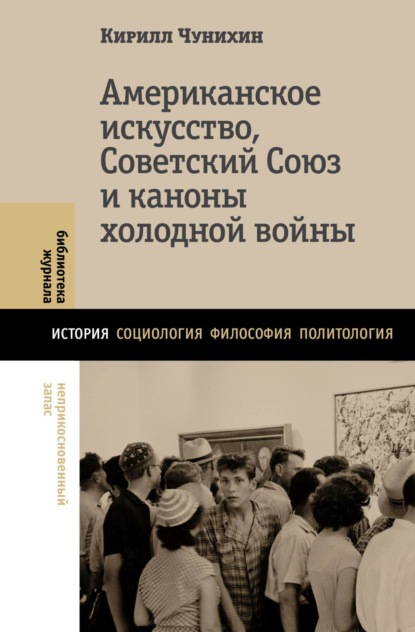
Полная версия
От интернационализма к постколониализму. Литература и кинематограф между вторым и третьим миром
Конец ознакомительного фрагмента.
Текст предоставлен ООО «Литрес».
Прочитайте эту книгу целиком, купив полную легальную версию на Литрес.
Безопасно оплатить книгу можно банковской картой Visa, MasterCard, Maestro, со счета мобильного телефона, с платежного терминала, в салоне МТС или Связной, через PayPal, WebMoney, Яндекс.Деньги, QIWI Кошелек, бонусными картами или другим удобным Вам способом.
1
Внесен Генеральной прокуратурой РФ в реестр организаций, деятельность которых признана нежелательной на территории РФ.
2
См. базовую классификацию отношений по типологическому сходству и генетическим контактам, предложенную словацким компаративистом Дионизом Дюришином: Ďurišin D. Theory of Literary Comparatistics. Bratislava: Veda, PubHouse of the Slovak Academy of Sciences, 1984. P. 108.
3
Sauvy A. Trois Mondes, Une Planète // L’Observateur. 14 August 1952. P. 14.
4
Александр Гордон, интервью. О некоторых из этих дискуссий см.: Casula P. Two Soviet Responses to Franz Fanon (1978–1979) by Rostislav Ulianovskii and Aleksandr Gordon // Arab-Russian Worlds, ed. M. Litvin, E. Kane, M. Kirasoriva. Oxford: Oxford University Press, 2023. P. 316–323.
5
Не забудем, что конференция, прошедшая в Бандунге в апреле 1955 года, по-прежнему называлась афро-азиатской, а одной из первых организаций, образовавшихся после нее, стала Организация солидарности народов Азии и Африки со штаб-квартирой в Каире. Только после Кубинской революции 1959 года Движение неприсоединения утвердилось в Латинской Америке.
6
О включении афроамериканских писателей в систему советского просвещения в последние годы выходит все больше работ: Moore D. C. Local Color, Global ‘Color’: Langston Hughes, the Black Atlantic, and Soviet Central Asia, 1932 // Research in African Literatures. 1996. Vol. 27. № 4. P. 49–70; Moore D. C. Colored Dispatches from the Uzbek Border: Langston Hughes’ Relevance, 1933–2002 // Callaloo. 2002. Vol. 25. № 4. P. 1115–1135; Baldwin K. A. Beyond the Color Line and the Iron Curtain: Reading Encounters Between Black and Red, 1922–1963. Durham, NC: Duke University Press, 2002; Lee S. The Ethnic Avant-Garde: Minority Cultures and World Revolution. New York, NY: Columbia University Press, 2015; Clark K. The Representation of the African American as Colonial Oppressed in Texts of the Soviet Interwar Years // The Russian Review. 2016. Vol. 75. № 3. P. 368–385; Mukherji A. ‘Like Another Planet to the Darker Americans’: Black Cultural Work in 1930s Moscow // Africa in Europe: Studies in Transnational Practice in the Long Twentieth Century, ed. E. Rosenhaft, R. J. Macvicar Aitken. Liverpool: Liverpool University Press, 2013. P. 120–141.
7
Babiracki P. Soviet Soft Power in Poland: Culture and the Making of Stalin’s New Empire, 1943–1957. Chapel Hill, NC: The University of North Carolina Press, 2015; Babiracki P., Jersild A. (eds.) Socialist Internationalism in the Cold War: Exploring the Second World. Cham: Springer International Publishing, 2016; Applebaum R. Empire of Friends: Soviet Power and Socialist Internationalism in Cold War Czechoslovakia. Ithaca, NY: Cornell University Press, 2019.
8
О привлекательности маоизма в США см.: Kelley R. D. G., Esche B. Black like Mao // Souls. 1999. Vol. 4. № 1. P. 6–41. Конкретно о литературном маоизме и его роли в движении афро-азиатских писателей см. Yoon D. Cold War Africa and China: The Afro-Asian Writers’ Bureau and the Rise of Postcolonial Literature. PhD thesis, UCLA, 2014.
9
Подробнее об этом процессе см.: Friedman J. S. Shadow Cold War: The Sino-Soviet Competition for the Third World. Chapel Hill, NC: University of North Carolina Press, 2015.
10
Mahler A. G. From the Tricontinental to the Global South: Race, Radicalism, and Transnational Solidarity. Durham, NC: Duke University Press, 2018.
11
О том, как «культурная революция» давила на граждан Китая, живущих в зонах контакта с другими культурами, и как ее постепенное угасание в 1970‑е годы уменьшило привлекательность маоизма для других стран (что отчасти напоминает произошедшее в конце 1930‑х с Советским Союзом), см.: McGuire E. Red at Heart: How Chinese Communists Fell in Love with the Russian Revolution. New York, NY: Oxford University Press, 2018. P. 342–365. О хронологических вехах советизации Кубы см.: Loss J., Prietto J. M. (eds.) Caviar with Rum: Cuba–USSR and the Post-Soviet Experience. New York, NY: Palgrave Macmillan US, 2012. P. 18–21.
12
Unkovski-Korica V. The Economic Struggle for Power in Tito’s Yugoslavia: From World War II to Non-Alignment. London: I. B. Tauris, 2016.
13
Число работ о культурных аспектах взаимодействия разных европейских стран с пространствами третьего мира неуклонно растет. См.: Lovejoy A. The World Union of Documentary, the Early Cold War, and International Documentary Between East and West [рукопись]; Zubel M. Toward a Second World Third Cinema: Anti-Colonial Internationalism in Tadeusz Jaworski’s 80 Days of Lumumba // Studies in Eastern European Cinema. 2016. Vol. 7. № 3. P. 190–207; Stejskalová T. (ed.) Filmaři všech zemí, spojte se!: zapomenutý internacionalismus, československý film a třetí svět. Praha: Tranzit.cz, 2017; Reilly C. Remains of Red Letters: Mediating World Literature in the Eastern Bloc. Presented at the Remapping European Media Cultures During the Cold War, University of Minnesota, Twin Cities, 31 March 2017.
14
Приняв доктрину Хальштейна (1955–1969), правительство ФРГ отказывалось признавать любую страну (кроме СССР), признавшую Восточную Германию. ГДР, дипломатически отрезанная от многих западных государств, постаралась установить отношения со странами Азии и Африки до Западной Германии. См.: Engerman D. The Second World’s Third World // Kritika: Explorations in Russian and Eurasian History. 2011. Vol. 12. № 1. P. 197.
15
РГАЛИ. Ф. 5. Оп. 36. Д. 92. Л. 76.
16
Popescu M. South African Literature beyond the Cold War. New York, NY: Palgrave Macmillan, 2010; Popescu M. At Penpoint: African Literatures, Postcolonial Studies, and the Cold War. Durham, NC: Duke University Press Books, 2020.
17
О Коминтерне см.: Pons S., Smith S. A. (eds.) Cambridge History of Communism: Vol. 1, World Revolution and Socialism in One Country 1917–1941. Cambridge: Cambridge University Press, 2017; Petersson F. «We Are Neither Visionaries Nor Utopian Dreamers»: Willi Münzenberg, the League against Imperialism, and the Comintern, 1925–1933. PhD thesis, Abo Akademi, 2013; Brasken K. The International Workers’ Relief, Communism, and Transnational Solidarity: Willi Münzenberg in Weimar Germany. London: Palgrave Macmillan, 2015. О «мировой холодной войне» см.: Westad O. A. The Global Cold War: Third World Interventions and the Making of Our Times. Cambridge: Cambridge University Press, 2007; Friedman J. S. Shadow Cold War и другие работы из серии New Cold War под редакцией Вестада, вышедшие в University of North Carolina Press. Prashad V. Red Star over the Third World. New Delhi: LeftWord Books, 2017; Hilger A. (ed.) Die Sowjetunion und die Dritte Welt: UdSSR, Staatssozialismus und Antikolonialismus im Kalten Krieg 1945–1991. Schriftenreihe der Vierteljahreshefte für Zeitgeschichte. Munich: Oldenbourg, 2010; Roth-Ey K. We, as Commercial People, Understand: Soviet Cinema and Markets in the Global South. Presented at the ASeeeS, Boston, MA, 7 December 2018 – некоторые из немногих книг по истории советских контактов с третьим миром в целом, затрагивающих культурные аспекты.
18
См. исследования, посвященные взаимоотношениям СССР с третьим миром на уровне нации, регионов или континента: Matusevich M. No Easy Row for a Russian Hoe: Ideology and Pragmatism in Nigerian-Soviet Relations, 1960–1991. Trenton, NJ: Africa World Press, 2003; Matusevich M. Africa in Russia, Russia in Africa: Three Centuries of Encounters. Trenton, NJ: Africa World Press, 2007; Rupprecht T. Soviet Internationalism after Stalin: Interaction and Exchange between the USSR and Latin America during the Cold War. Cambridge: Cambridge University Press, 2015; McGuire E. Red at Heart; Engerman D. The Price of Aid: The Economic Cold War in India. Cambridge, MA: Harvard University Press, 2018. Благодаря серии семинаров о советско-арабских культурных контактах, организованных Маргарет Литвин, а также справочнику по этой теме, подготовленному ею же совместно с Машей Кирасировой и Эйлин Кейн, этот предмет изучен особенно хорошо. Однако появляются и другие аналогичные инициативы, часто тоже в форме семинаров: так, Стивен Ли организовал семинары на тему «Левая эстетика в Северо-Восточной Азии» (Leftist Aesthetics in North East Asia; Беркли, январь 2017 года), а Элизабет Бэнкс – «Африка и Советский Союз: технологии, идеологии, культура» (Africa and the Soviet Union: Technology, Ideology, and Culture; Нью-Йоркский университет, октябрь 2017 года).
19
Kirasirova M. The Eastern International: The «Domestic East» and the «Foreign East» in Soviet-Arab Relations, 1917–68. PhD thesis, New York University, 2014.
20
Эти чаяния во всей их первозданной лирической силе отражены в книге: Prashad V. Red Star over the Third World.
21
Denning M. Culture in the Age of Three Worlds. London: Verso, 2004.
22
О зарождении «советской мании величия» в 1930‑е годы см.: David-Fox M. Showcasing the Great Experiment: Cultural Diplomacy and Western Visitors to the Soviet Union, 1921–1941. New York, NY: Oxford University Press, 2014. P. 285–311.
23
Friedman J. S. The Shadow Cold War. P. 1–24.
24
О весьма непростых отношениях между этими двумя группами см. специальный выпуск журнала Critical Sociology, озаглавленный «Марксизм и постколониальная теория?» (Marxism and Postcolonial Theory?), а также предисловие к нему: Sinha S., Varma R. Marxism and Postcolonial Theory: What’s Left of the Debate? // Critical Sociology. 2017. Vol. 43. № 4–5. P. 545–558. См. также: Lazarus N., Varma R. Marxism and Postcolonial Studies // Critical Companion to Contemporary Marxism. P. 309–332.
25
См.: Rasberry V. Race and the Totalitarian Century: Geopolitics in the Black Literary Imagination. Cambridge, MA: Harvard University Press, 2016.
26
См.: Hakim A. Pan-Africanism and Communism: The Communist International, Africa and the Diaspora, 1919–1939. Trenton, NJ: Africa World Press, Inc., 2013. P. 401–416.
27
Недавние исследования советской массовой культуры тоже опровергают эту традиционную хронологию. См.: Roth-Ey К. Moscow Prime Time: How the Soviet Union Built the Media Empire That Lost the Cultural Cold War. Ithaca, NY: Cornell University Press, 2011; Evans C. Between Truth and Time: A History of Soviet Central Television. New Haven, CT: Yale University Press, 2016. Эванс К. Между «Правдой» и «Временем». История советского Центрального телевидения. М.: Новое литературное обозрение, 2024.
28
К счастью, работы по некоторым из этих тем уже появились. Об обучении незападных студентов в СССР см.: Katsakioris С. Burden or Allies? Third World Students and Internationalist Duty through Soviet Eyes // Kritika: Explorations in Russian and Eurasian History. 2017. Vol. 18. № 3. P. 539–567. О советской помощи см.: Mëhilli E. From Stalin to Mao: Albania and the Socialist World. Ithaca, NY: Cornell University Press, 2017; Engerman D. The Price of Aid: The Economic Cold War in India. Cambridge, MA: Harvard University Press, 2018. О возникновении региональных вариантов социализма, стремившихся дистанцироваться от советской модели, см.: Lal P. African Socialism in Postcolonial Tanzania: Between the Village and the World. New York, NY: Cambridge University Press, 2015.
29
Pratt M. L. Arts of the Contact Zone // Profession, 1 January 1991. P. 33–40.
30
Несмотря на ослабление роли Средней Азии, она все равно оставалась одним из ключевых мест для афроамериканцев, посещавших СССР в начале 1930‑х годов, будь то такие важные гости, как Лэнгстон Хьюз, или не столь знаменитые, но приезжавшие на более долгие сроки, как афроамериканские колхозники, встреченные тем же Хьюзом во время поездки по Узбекистану. См.: Hughes L. Autobiography: I Wonder as I Wander. Hughes, Langston, 1902–1967. Works. Vol. 14. Columbia, MO: University of Missouri Press, 2003. P. 191.
31
Khalid A. Introduction: Locating the (Post-) Colonial in Soviet History // Central Asian Survey. 2007. Vol. 26. № 4. P. 465–473; Kirasirova M. «Sons of Muslims» in Moscow: Soviet Central Asian Mediators to the Foreign East, 1955–1962 // Ab Imperio. 2011. № 4. P. 106–132; Kalinovsky A. Laboratory of Socialist Development: Cold War Politics and Decolonization in Soviet Tajikistan. Ithaca: Cornell University Press, 2018.
32
Djagalov R. Literary Monopolists and the Forging of the Post-World War II People’s Republic of Letters // Socialist Realism in Central and Eastern European Literatures under Stalin: Institutions, Dynamics, Discourses, ed. E. Dobrenko, N. Jonsson-Skradol. London: Anthem Press, 2018.
33
Трагическая судьба последних составляет тему пятой главы книги: McGuire E. Red at Heart.
34
Маша Салазкина, ведущий специалист по этой теме, показывает, как конкретная интерпретация советской теории кино 1920‑х годов в 1950–1960‑е годы добралась до кубинских режиссеров при посредстве итальянских марксистов. См.: Salazkina M. Moscow-Rome-Havana: A Film-Theory Road Map // October. 2012. № 139. P. 97–116.
35
См. работу о западноевропейских образах Восточной Европы: Wolff L. Inventing Eastern Europe: The Map of Civilization on the Mind of the Enlightenment. Stanford: Stanford University Press, 1994. Об ориентализме в изображении Кавказа русской литературой XIX века: Layton S. Russian Literature and Empire: Conquest of the Caucasus from Pushkin to Tolstoy. Cambridge Studies in Russian Literature. New York, NY: Cambridge University Press, 1994. О балканизме как аналоге ориентализма: Todorova M. Imagining the Balkans. New York, NY: Oxford University Press, 1997. О российском востоковедении позднеимперского периода: Schimmelpenninck van der Oye D. Russian Orientalism: Asia in the Russian Mind from Peter the Great to the Emigration. New Haven, CT: Yale University Press, 2010. О русской поэзии 1730–1840‑х годов и ее отношениях с империей: Ram H. The Imperial Sublime: A Russian Poetics of Empire. Publications of the Wisconsin Center for Pushkin Studies. Madison: University of Wisconsin Press, 2003. О русском крестьянстве XIX века: Etkind A. Internal Colonization: Russia’s Imperial Experience. Cambridge, UK; Malden, MA: Polity Press, 2011.
36
Moore D. C. Is the Post- in Postcolonial the Post- in Post-Soviet? Toward a Global Postcolonial Critique // PMLA. 2001. Vol. 116. № 1. P. 111–128; Smola K., Uffelmann D. (eds.) Postcolonial Slavic Literatures After Communism. Frankfurt: Peter Lang, 2017; Chernetsky V. Mapping Postcommunist Cultures: Russia and Ukraine in the Context of Globalization. Montreal: McGill-Queen’s University Press, 2007; Tlostanova M. Postcolonialism and Postsocialism in Fiction and Art: Resistance and Re-Existence. Cham: Springer International Publishing, 2017; Tlostanova M. What Does It Mean to Be Post-Soviet? Decolonial Art from the Ruins of the Soviet Empire. Durham, NC: Duke University Press, 2018; Condee N. The Imperial Trace: Recent Russian Cinema. New York, NY: Oxford University Press, 2009; Platt K. M. F. Occupation versus Colonization: Post-Soviet Latvia and the Provincialization of Europe // Memory and Theory in Eastern Europe, ed. U. Blacker, A. Etkind, J. Fedor. New York, NY: Palgrave Macmillan US, 2013. P. 125–145; Platt K. M. F. (ed.) Global Russian Cultures. Madison, Wisconsin: The University of Wisconsin Press, 2019; Platt K. M. F. Near Abroad: Russian Culture in Latvia [manuscript]; Oushakine S. A. How to Grow out of Nothing: The Afterlife of National Rebirth in Postcolonial Belarus // Qui Parle. 2017. Vol. 26. № 2. P. 423–490.
37
Young R. J. C. Postcolonialism: An Historical Introduction. Malden, MA: Blackwell Publishing, 2001.
38
Brennan T. Postcolonial Studies Between the European Wars: An Intellectual History // Marxism, Modernity and Postcolonial Studies, ed. C. Bartolovich, N. Lazarus. Cambridge: Cambridge University Press, 2002. P. 185–203.
39
D’haen T., Damrosch D., Kadir D. (eds.) The Routledge Companion to World Literature. London: Routledge, 2011.
40
Tihanov G. The Location of World Literature // Canadian Review of Comparative Literature / Revue Canadienne de Littérature Comparée. 2017. Vol. 44. № 3. P. 468–481; Tihanov G. The Birth and Death of Literary Theory: Regimes of Relevance in Russia and Beyond. Standord: Stanford University Press, 2019. P. 175–185; Tihanov G. Ferrying a Thinker Across Time and Language: Bakhtin, Translation, World Literature // Modern Languages Open. 2018. № 1. P. 1–10; Tihanov G. Foreword // Szerb A. Reflections in the Library: Selected Literary Essays, 1926–1944. Cambridge: Legenda, 2017. P. ix–xi.
41
Clark K. Moscow, the Fourth Rome: Stalinism, Cosmopolitanism, and the Evolution of Soviet Culture, 1931–1941. Cambridge, MA: Harvard University Press, 2011; Sherry S. Discourses of Regulation and Resistance: Censoring Translation in the Stalin and Khrushchev Era Soviet Union. Edinburgh: Edinburgh University Press, 2015; Khotimsky M. World Literature, Soviet Style: A Forgotten Episode in the History of the Idea // Ab Imperio. 2013. № 3. P. 119–154; Ostrovskaya E., Zemskova E. Between the Battlefield and the Marketplace: International Literature Magazine in Britain // Russian Journal of Communication. 2016. Vol. 8. № 3. P. 217–229; Земскова Е. Е. История журнала «Интернациональная литература»: перспективы исследовательского проекта // Новые российские гуманитарные исследования. 2014. № 9; Островская Е. С. На пути к «Writers’ International»: о создании британской секции МОРПа // Литература и идеология. Век двадцатый. М.: МАКС Пресс, 2016; David-Fox M. Showcasing the Great Experiment.
42
Добренко Е. Найдено в переводе: рождение советской многонациональной литературы из смерти автора // Неприкосновенный запас. 2011. № 78 (4). С. 236–262; Frank S. The Impact of Multinational Soviet Literature on Post-Soviet Literary Develoments // Smola K., Uffelmann D. (ed.) Postcolonial Slavic Literatures after Communism; Ram H. City, Nation, Empire and the Russian-Georgian Encounter. Manuscript; Kudaibergenova D. Rewriting the Nation in Modern Kazakh Literature: Elites and Narratives. Lanham, MD: Lexington Books, 2017; Schild K. Between Moscow and Baku: National Literatures at the 1934 Congress of Soviet Writers. PhD thesis, University of California, Berkeley, 2010; Yountchi L. Between Russia and Iran: Soviet Tajik Literature and Identity, 1920–1991. PhD thesis, Northwestern University, 2011; Erley L. Reclaiming Native Soil: Cultural Mythologies of Soil in Russia and Its Eastern Borderlands from the 1840s to the 1930s. PhD thesis, University of California, Berkeley, 2012; Feldman L. On the Threshold of Eurasia: Revolutionary Politics and the Caucasus. Ithaca, NY: Cornell University Press, 2018; Caffee N. Between First, Second, and Third Worlds: Olzhas Suleimenov and Soviet Postcolonialism, 1961–1973 // Russian Literature. 2020. Vol. 111–112. № 4. P. 103.
43
Andrew D. An Atlas of World Cinema // Framework: The Journal of Cinema and Media. 2004. Vol. 45. № 2. P. 9–23; Gabriel T. H. Third Cinema in the Third World: The Aesthetics of Liberation. Ann Arbor, MI: UMI Research Press, 1982.
44
Salazkina M. In Excess: Sergei Eisenstein’s Mexico. Cinema and Modernity. Chicago, IL: University of Chicago Press, 2009; Salazkina M. Soviet-Indian Coproductions: Alibaba as Political Allegory // Cinema Journal. 2010. Vol. 49. № 4. P. 71–89.
45
Malitsky J. Post-Revolution Nonfiction Film: Building the Soviet and Cuban Nations. Bloomington, IN: Indiana University Press, 2013; Rajagopalan S. Indian Films in Soviet Cinemas: The Culture of Movie-Going after Stalin. Bloomington: Indiana University Press, 2009; Федорова А. Формирование школы монтажной выразительности в японском документальном кино 1930–1950‑х годов: творчество Камэи Фумио: дисс. … канд. иск. наук. М.: ВГИК, 2017.
46
Litvin M. Hamlet’s Arab Journey: Shakespeare’s Prince and Nasser’s Ghost. Translation/Transnation. Princeton, NJ: Princeton University Press, 2011; Ertürk N., Serin Ö. Marxism, Communism, and Translation: An Introduction // Boundary 2. 2016. Vol. 43. № 3. P. 1–26; Cho H. Translation’s Forgotten History: Russian Literature, Japanese Mediation, and the Formation of Modern Korean Literature. Cambridge, MA: Harvard University Press, 2016; Loss J. Dreaming in Russian: The Cuban Soviet Imaginary. Austin, TX: University of Texas Press, 2013; Lee S. The Ethnic Avant-Garde: Minority Cultures and World Revolution. New York, NY: Columbia University Press, 2015; Volland N. Socialist Cosmopolitanism: The Chinese Literary Universe, 1945–1965. New York, NY: Columbia University Press, 2017; Chan J. K. Y. Chinese Revolutionary Cinema: Propaganda, Aesthetics and Internationalism 1949–1966. London: I. B. Tauris, 2019; Qian Y. Visionary Realities: Documentary Cinema in Socialist China. Doctoral dissertation, Harvard University, 2013; Humphreys L.‑Z. Fidel between the Lines: Paranoia and Ambivalence in Late Socialist Cuban Cinema. Durham, NC: Duke University Press, 2019; Dickinson K. Arab Cinema Travels: Transnational Syria, Palestine, Dubai and Beyond. London: British Film Institute, 2016; Salti R. (ed.) Saving Bruce Lee: African and Arab Cinema in the Era of Soviet Cultural Diplomacy. Berlin: House der Kulturen der Welt, 2018.
47
Cheah P. What Is a World? On Postcolonial Literature as World Literature. Durham: Duke University Press, 2016.
48
Damrosch D. How to Read World Literature. Malden, MA: Wiley-Blackwell, 2007. P. 46–65.
49
Andrew D. An Atlas of World Cinema // Framework: The Journal of Cinema and Media. 2004. Vol. 45. № 2. P. 9–23.
50
Anderson B. Imagined Communities: Reflections on the Origin and Spread of Nationalism. London: Verso, 1983.




